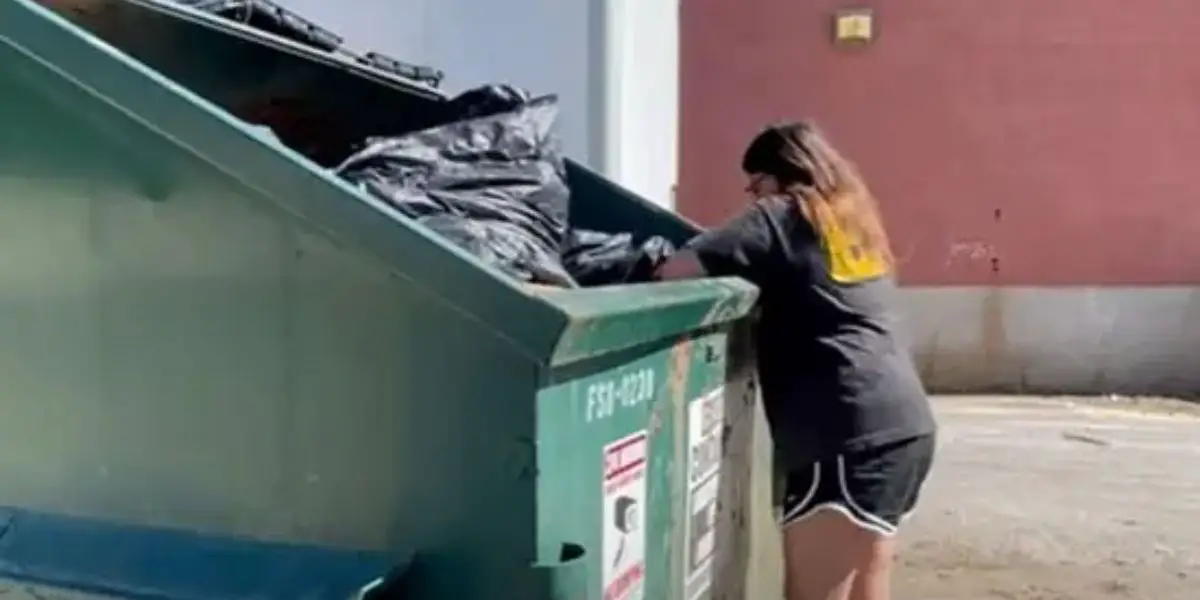Dumpster diving, the act of searching through trash bins and dumpsters for discarded food, items, or valuables, has become a controversial topic in many parts of the United States, including California.
Some view it as a form of resourcefulness, while others see it as unsanitary or even unlawful. If you’re curious about whether dumpster diving is legal in California, the short answer is: it depends.
In this article, we’ll explore the legalities, risks, and what you need to know before diving into a dumpster in the Golden State.
1. The Basics of Dumpster Diving in California
In California, dumpster diving itself is not outright illegal, but there are important factors to consider that could make it unlawful depending on the circumstances. Various laws at the state, county, and municipal levels regulate public property, trespassing, theft, and waste disposal, all of which can impact the legality of dumpster diving.
2. The Legal Issues Behind Dumpster Diving
Trespassing
One of the main legal concerns when it comes to dumpster diving is trespassing. In many cases, dumpsters are located on private property. Even though the contents of the dumpster are often discarded and seem free for the taking, the property on which the dumpster sits is still private. Entering private property without permission, whether to access the dumpster or not, can result in a trespassing charge.
For example, if you’re diving in a dumpster located behind a store, restaurant, or apartment complex, and the property is posted with “No Trespassing” signs or if the property is enclosed by a fence or gate, you could be charged with trespassing.
Theft
Another potential legal issue is theft. Even though trash is discarded, it still belongs to the entity that disposed of it. If a dumpster is located on private property, taking items from it without permission could be considered theft. Some California municipalities have specific laws about “abandoned property,” but generally, anything thrown away in a dumpster is still considered the property of the business or homeowner until it is collected by waste management.

Additionally, many dumpsters belong to specific waste management companies that own the contents until the trash is picked up. Taking items from those dumpsters could be considered theft of property from the waste management company.
Violation of Local Ordinances
Different cities and counties in California have specific ordinances that regulate waste disposal and what is considered “illegal scavenging.” For example, in some cities, it’s illegal to take items from commercial dumpsters, especially food. Even if a dumpster is left open and accessible, there may be local laws that prevent individuals from removing items for safety or health reasons.
3. The Environmental and Ethical Perspective
Complex Rules! Is dumpster diving allowed in Florida? Breaking Down the Legalities
Beyond legal considerations, many people dumpster dive for environmental reasons. In California, where sustainability and environmental responsibility are emphasized, individuals may want to reduce waste by salvaging items that could otherwise end up in landfills. This includes reusable goods, food, and materials that might still be in good condition.
In fact, “food waste” is a significant concern in California. It is estimated that millions of pounds of edible food are discarded each year, while many people face food insecurity. Some advocates argue that dumpster diving should be seen as an ethical practice to reduce food waste and provide for those in need.
However, this practice can still raise health and safety concerns, especially when it comes to consuming discarded food. The California Health and Safety Code prohibits selling or distributing food that has been discarded or is potentially hazardous. While this doesn’t necessarily make it illegal to eat food you find in a dumpster, it can be a risky endeavor.
4. When Dumpster Diving May Be Legal
There are instances when dumpster diving may be less risky or even legal. Here are a few scenarios where you may be in the clear:
- Public Property: If the dumpster is located on public property, like a public park or sidewalk, and is not posted with signs prohibiting scavenging, you may be allowed to take items from it.
- Abandoned Property: In certain cases, once items are truly abandoned or left in a public space without restriction, they could be legally recovered, but this varies by jurisdiction.
- Permission: If you have explicit permission from the property owner or business to take items from their dumpster, you are legally protected from trespassing or theft charges.
5. Safety Considerations for Dumpster Divers
Even if you’re not breaking the law, dumpster diving can still be risky. Here are some tips to stay safe while scavenging:
- Wear Protective Gear: Always wear gloves, sturdy clothing, and closed-toe shoes to avoid injury from broken glass, sharp objects, or hazardous materials.
- Be Aware of Health Hazards: Dumpster-dived food may be spoiled, moldy, or contaminated. Always inspect items carefully and avoid food that could pose a health risk.
- Avoid confrontations: Be respectful when diving, and avoid arguing with property owners or employees. If asked to leave, comply with their requests.
Conclusion: Is Dumpster Diving Legal in California?
Dumpster diving in California is not necessarily illegal, but there are several laws and regulations that can make it unlawful depending on where and how you dive.
Trespassing, theft, and violating local ordinances are the primary legal risks you might encounter. If you’re dumpster diving for food or items, it’s important to understand the local laws and act responsibly. Always seek permission when possible and make safety a priority to avoid any legal or health issues.
So, while dumpster diving can be a great way to reduce waste and find hidden treasures, it’s crucial to do your research on the specific laws in your area before diving in. Happy (and legal) diving!




